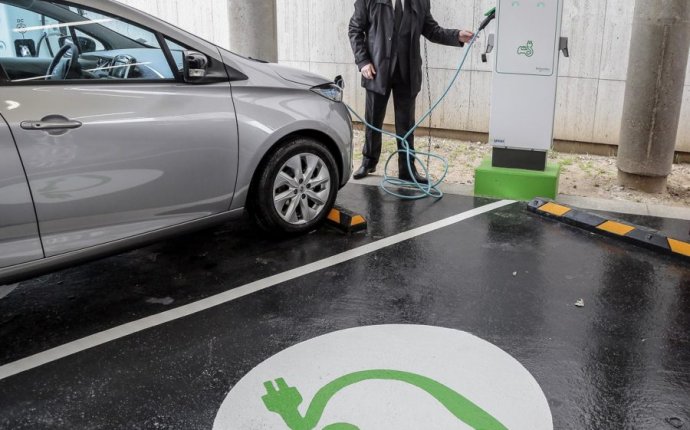
How to Charge your electric Car?

Introduction
Every month we sell many of our cloud-connected smart charge points across Europe. With electric driving becoming more popular with more people choosing to swap their fuel-hungry car for a cleaner EV, it is also important to know how the charging actually works. How long does a car need to charge fully? And what types of charge points are there?
How does a charge point work?
You can install a charge point in three main areas: in public, at the office or at your house. The charge point is always connected to the grid, this means that it is always available to energy. You first need to connect your car to the charge point, swipe your charge card along the RFID - reader and start charging your EV.
Within the cloud-connect smart charge point of NewMotion is an energy meter. This meter measures how much you exactly charge per session in the same way your home energy meter tracks how much electricity is consumed. You can track your sessions in the my.newmotion.com dashboard once you registered your charge point.
How long does it take to charge a battery?
With a charge point from NewMotion, you can can choose how much power is delivered to charge your car: 3.7 kW, 7.4 kW, 11 kW and 22 kW. The amount kilowatts a charge point can deliver directly influences the charging time.
*The time it takes to charge you car, also depends on the capacity of the car battery. It takes a smaller battery less time to charge fully, than a bigger battery.
The Nissan Leaf, which has a battery capacity of 24 kWh, can charge on a 1 phase charge point that delivers 3.7 kWh. It will take a Nissan Leaf around 6.5 hours to charge fully on this charge point.
Did you know?
According to our charging network data, EV’s are typically plugged-in for 11 hours at a time on average. This does not mean that it takes an EV this long to charge, but this is the amount of time the vehicle is plugged into a charge point. The average amount of kWh they charge is 7.5 kWh. PHEV’s mostly charge on 3.7 kWh charge points and therefore take around 2 hours to charge 7.5 kWh. Even though the EV’s are connected for a long period of time on average, they do not use a large amount of kWh’s to charge. From those 11 hours they are connected, they actually charge around 2 hours or less on average.
Remote Charge Point Control
We just discussed that EV’s are connected for 11 hours and are charging for only 2 hours. This is quite an inefficient use of a charge point, because this means that other people, for example your colleagues, cannot charge their car. We have a solution for this. We have introduced a service called remote charge point control. This service allows you to start and stop charge sessions anywhere and anytime remotely. Once the session is stopped, the charging cable will be unlocked and other people will be able to charge their electric vehicle.
Open network
We want to motivate people to have better access and hassle free charge experiences to live their lives more sustainably and do so by providing an open network for drivers to charge at a time and place that suits them. We do this by giving drivers a single charge card to access this open network. We already have provided access to around 30.000 public charge points in Europe, which you can find in our NewMotion app.









